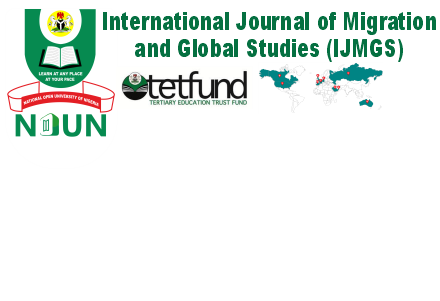There is an age-long dichotomy and struggle among Nigerians on the basis of settler/indigene status. Section 147 (3) of the 1999 Constitution (Amended) also indirectly legitimises this dichotomy. This has often led to communal strife, marginalisation, political exclusion, disunity and lack of national cohesion and integration. The challenge has persisted despite government’s effort such as review of the Land Use Act, social justice and implementation of recommendation of some government white papers. The COVID-19 pandemic and its attendant migration challenges again reawakened the indigene/ settler controversy and the media served as a platform for the expression of discriminatory discourse. Using the media reports on COVID-19 pandemic as a springboard, the study therefore examined the discursive construction of citizens’ access to rights with a view to unveiling opaque media’s role in the ideological (re)production of unequal power relations among the citizens. Data were drawn from purposively selected 50 media reports on Covid-19 posted on some Nigeria’s media’s websites from February to June, 2020. This period covers the inception of the outbreak of COVID-19 in Nigeria to the total lockdown of the country and gradual easing of the lockdown. The data were analysed drawing on insights from Critical Discourse Analysis (CDA). The analysis of the data revealed that the construction of settler/indigene dichotomy was achieved through four discourse strategies: polarization, criminalization, emotional appeal/victim discourse andlegitimation. The study concluded that there is the need to resolve the issues of citizens’ rights in Nigeria since the country has the potential to attain national integration.
